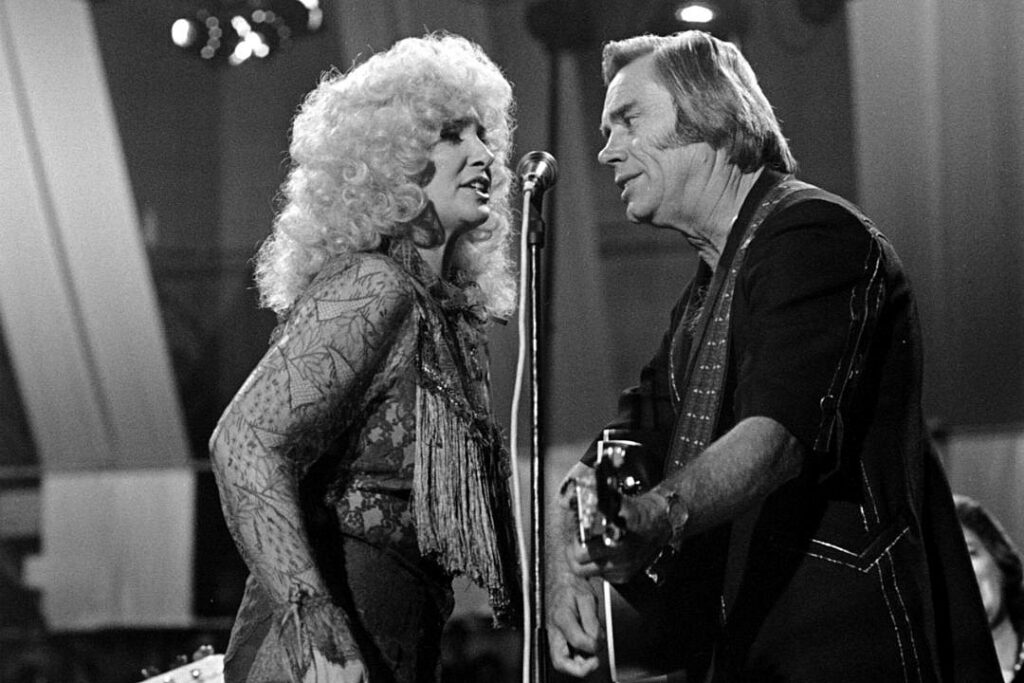
Love’s Echo in a Band of Gold: A Tragic Ballad of Union, Undoing, and the Illusions We Cling To
Released in 1976, “Golden Ring” reached the coveted No. 1 spot on the Billboard Hot Country Singles chart, reaffirming the powerful chemistry between George Jones and Tammy Wynette, even after their highly publicized divorce. Appearing on their collaborative album Golden Ring, the song transcends its era, offering a poignant narrative about the life cycle of love as symbolized by a simple wedding band—shining, coveted, and ultimately hollow when stripped of meaning.
The genius of “Golden Ring” lies not just in its lyrical storytelling but in how intimately it mirrored the personal turmoil of its performers. Written by Bobby Braddock and Rafe Van Hoy, the song was crafted during a period when country music was evolving toward slicker productions, yet this track clung steadfastly to the genre’s roots in narrative depth and emotional authenticity. Jones and Wynette had divorced two years prior to recording the song, but their voices—intertwined with both ache and affection—lend the track a disarming sincerity that no fiction could fabricate.
Structured like a miniature tragedy in three acts, “Golden Ring” follows the journey of a wedding ring from pawnshop to proposal, from marriage to disintegration, and finally back to the pawnshop once more—a closed loop that mirrors love’s bitter circularity. The ring, inert and unfeeling, is the constant amid shifting human emotions. “By itself it’s just a cold metallic thing,” they sing in aching harmony, “Only love can make a golden wedding ring.” That one line contains multitudes: a lament for love lost, a commentary on materialism versus emotional truth, and perhaps most piercingly, an acknowledgment that symbols mean nothing without substance behind them.
Musically, the arrangement is understated—guitars weep softly behind their vocals, while gentle percussion evokes the ticking of time or perhaps the quiet decay of what once was. The production doesn’t draw attention to itself; rather, it places Jones and Wynette front and center, allowing their weathered voices to carry the emotional freight. There’s an almost funereal patience to how they deliver each verse—as though they’re walking slowly through memories too sacred to rush.
What renders “Golden Ring” so devastating is its refusal to assign blame. No one is vilified; no villain exists. The song suggests that sometimes love simply erodes—not with malice but with wear. In this way, it elevates itself from mere heartbreak balladry into something mythic—a meditation on how romance can be consumed by its own rituals.
In retrospect, it’s tempting to see “Golden Ring” as autobiographical—a morose duet between two lovers haunted by what they once shared—but that interpretation only deepens its resonance. The song endures not because it chronicles George and Tammy’s specific pain, but because it captures something universally true about human connection: that even our brightest moments can leave shadows behind.